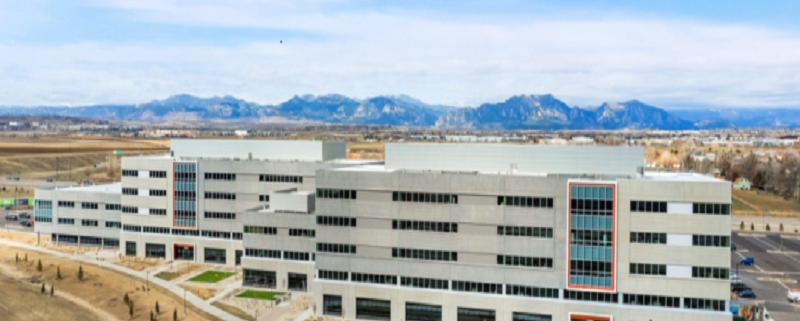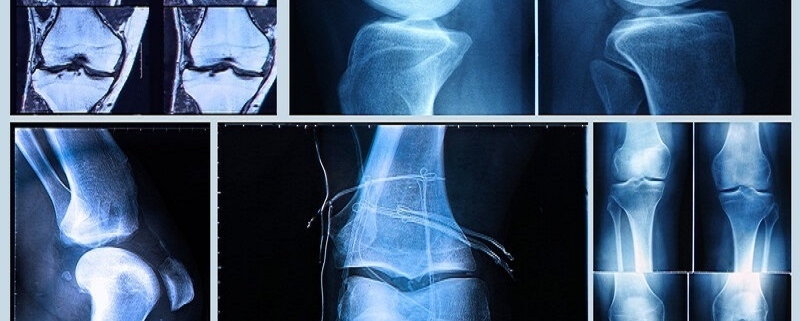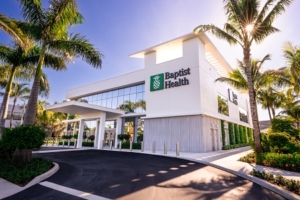The Case For Growing Healthcare In The Middle Of Nowhere
Rural healthcare can be a headache for leadership, one many systems won’t entertain. But for Wausau, Wis.-based Aspirus, it’s the whole model; it’s the growth plan.
Matt Heywood has been leading the health system for more than 10 years, and he’s always had the same motto, he told Becker’s: “Sometimes in chaos is opportunity.”
That’s certainly been true for Aspirus, which recently inked a deal with Duluth, Minn.-based St. Luke’s. The two entities will combine to form a 19-hospital system at a time when industry M&A has hit a major snag. Healthcare is dealing with an existential crisis and it makes sense that a lot of other systems are putting acquisitions on hold. But St. Luke’s and Aspirus share a similar mission — keeping healthcare local, maintaining consistent quality regardless of ZIP code — so a partnership made sense.
It’s not the first growth move for Aspirus, which is “tucking in” like-minded entities. In 2021, the health system acquired seven hospitals and 21 clinics from Ascension Wisconsin.
“With the Ascension acquisition, by getting that contiguous scale, we’re able to bring orthopedic services, surgical services closer to the patient than before,” Mr. Heywood said. “Because we were doing it on our own. And Ascension was doing it on their own. And neither one of us could effectively get enough scale to provide care to those patients.”
Rural healthcare requires a different approach, according to Mr. Heywood. Some locations are immune to innovations sweeping urban areas; internet can be inconsistent, nixing telehealth offerings, and patients are widely dispersed, making it difficult to employ hospital-at-home programs. Instead of leaning on the new norm and centralizing care at a few in-person locations, Aspirus aims to expand physical sites of service.
“It’s a model I think a few others are trying, but not many. And the reason not many are trying is it’s a lot of work,” Mr. Heywood said. “It is a commitment that takes the management team, our physicians, and our staff a lot more energy than it would if we just said, ‘You know what? Let’s just ship everything to Wausau or Duluth and not have stuff out in the community for our patients.'”
It’s a delicate balance — sites can’t be too dispersed, because that’s inefficient. But care should remain as local as possible so cancer patients don’t have to drive hours for intravenous therapies. The more scale Aspirus has, the more resources and technology it can deploy, and the better connectivity to larger sites will be.
The health system also aims to utilize critical access designations to their maximum ability, making sure each site can do what it needs to do based on the community’s needs and size.
“We have some critical access hospitals, which we call ‘frontier,’ which are very much EDs with a few beds and clinics,” Mr. Heywood said. “But then you might have what we call a ‘super critical access hospital,’ which is doing outpatient surgeries, orthopedic surgeries, OB, things like that.”
One major challenge: staffing. Worker shortages are a nationwide issue, and rural areas are certainly not immune. Aspirus is working with local community colleges to create feeder programs, looking to employ talented people before they leave, according to Mr. Heywood.
“We are trying to sell that rural America, the Midwest, is maybe not so bad when you’re having Tropical Storm Hilary in Palm Springs, you’re having a major hurricane hit you in Florida, you’re having wildfires here and there,” Mr. Heywood said. “So what we’re trying to do is get people to see that staying close to home is not a bad thing, so we don’t have a flight from rural America that has historically been happening.”
The Aspirus model isn’t a conventional one, but Mr. Heywood has faith in it. Someone has to; about 100 million people live in underserved rural America, and on average, they die two years younger than their urban counterparts.
“You have to look out into the future and see what you think the future is,” Mr. Heywood said, “independently of what everybody’s telling you.”
Source: Becker’s Hospital Review




 The expansive, 17,000-square-foot facility is located adjacent to the Baptist Health Training Complex, the Dolphins’ training facility, with clinical areas overlooking the team’s practice field. The new location will provide the public with high-quality orthopedic care, featuring cutting-edge technology and renowned Baptist Health medical experts.
The expansive, 17,000-square-foot facility is located adjacent to the Baptist Health Training Complex, the Dolphins’ training facility, with clinical areas overlooking the team’s practice field. The new location will provide the public with high-quality orthopedic care, featuring cutting-edge technology and renowned Baptist Health medical experts.